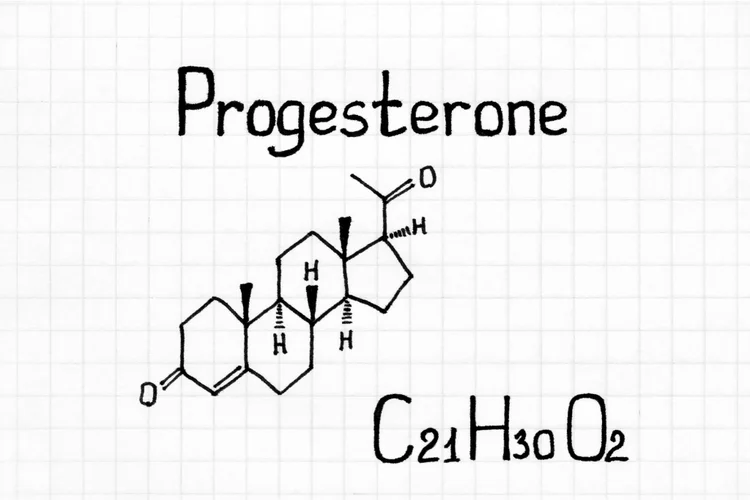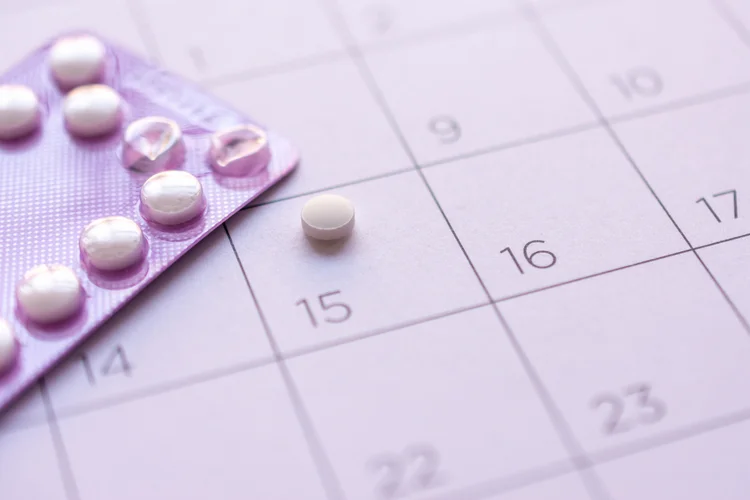What Is Norethisterone?
Norethisterone is a synthetic version of the hormone progesterone and is commonly prescribed for various gynaecological concerns, including menstrual cycle regulation and the management of certain medical conditions. In Singapore, this medication is only available with a doctor’s prescription and is frequently used as a short-term option to delay menstruation, particularly useful during occasions or events where having a period may cause inconvenience.
Norethisterone: How Does It Work?
Norethisterone works by imitating the natural actions of progesterone, a hormone that plays a vital role in controlling the menstrual cycle. By raising progesterone levels through external means, norethisterone prevents the breakdown of the uterine lining, which in turn delays menstruation. It also supports the treatment of various menstrual-related conditions.

Norethisterone Uses
Delay Menstruation
Norethisterone is widely used for postponing menstruation, especially during events such as holidays, weddings, or athletic competitions, where a period may be disruptive. It temporarily stops the menstrual cycle, allowing individuals to avoid the discomfort and limitations often associated with periods, offering added flexibility during important engagements.

Heavy Menstrual Bleeding
Doctors may prescribe norethisterone for the treatment of menorrhagia, which refers to excessively heavy or prolonged periods. The medication helps regulate and reduce menstrual flow, easing symptoms like fatigue, cramping, and interruptions to daily activities, to improve the individual’s overall comfort and well-being.
Endometriosis Management
Norethisterone can also be used to relieve symptoms of endometriosis, a condition where tissue similar to the uterine lining grows outside the uterus, often causing pain and heavy bleeding. By influencing hormone levels, norethisterone slows the growth of this tissue and helps manage associated symptoms, resulting in lighter periods and improved day-to-day comfort.
Norethisterone Dosage to Delay Period
To delay your period, norethisterone is typically prescribed to be taken three to four days prior to the expected start of menstruation and continued for up to two weeks. After discontinuing the medication, periods usually return within two to three days. As dosage requirements can vary depending on individual health conditions, it is important to follow a doctor’s advice for proper use.
Side Effects of Norethisterone to Delay Period
While many individuals tolerate norethisterone well, some may experience side effects, including:
- Abdominal pain or discomfort
- Nausea
- Headaches
- Dizziness
- Breast tenderness
Less common but more serious side effects may include allergic reactions such as
skin rashes, itching, swelling, or difficulty breathing. If you experience any of
these symptoms, seek medical attention immediately.
Disclaimer: This list does not include all possible side
effects. The content provided here is for general information and should not
replace professional medical advice. Always consult your doctor before starting
any medication.
Who Should Take Precautions or Avoid Norethisterone?
Before taking norethisterone, you should inform your doctor if you:
- Have known allergies to norethisterone or its ingredients
- Are pregnant or planning to become pregnant
- Are currently on other medications, including supplements
- Have a history of medical conditions such as migraines, epilepsy, diabetes, heart disease, stroke, liver problems, blood clots, or cancer
Sharing your full medical history helps your doctor assess whether norethisterone is suitable and safe for you.
Norethisterone Price in Singapore
At healthscreening.sg, we offer norethisterone for period delay, oral contraceptive pills, and morning-after pills at our clinics, with the prices as follows:
| Medication | Price* |
|---|---|
| Consultation | From $49.05 |
| Teleconsultation | From $38.15 |
| Period Delay Pill (Norethisterone 5 mg) | $0.76 per tab |
| Morning-After pill (Ella®) | $43.60 |
| Oral Contraceptive Pill (Yaz®) | $43.60 (per box of 40 tablets) |
*Prices are NETT and inclusive of GST.
^Prices last updated on
Jan 28, 2026. While every effort is made to keep pricing information up to date, please contact our team to confirm the latest rates.
Where to Buy Norethisterone in Singapore?
Why Choose Us?








Navigate Easy With Google Maps
Health Screening Singapore (Anson House)
Nearest MRT: EW15 Tanjong PagarHealth Screening Singapore (Camden Medical Centre)
Nearest MRT: TE13 Orchard BoulevardHealth Screening Singapore (CPF Jurong Building)
Nearest MRT: NS1/EW24 Jurong EastFrequently Asked Questions (FAQs)
Yes, norethisterone is a prescription-only medication. You’ll need to see your doctor, who will assess whether it’s suitable for your individual health circumstances. At healthscreening.sg, we offer norethisterone for period delay at $0.76 NETT per tablet, inclusive of GST but excluding consultation fees.
Norethisterone is intended to delay menstruation when taken before a period begins. It is not usually prescribed to stop an ongoing period. It is best to speak with your doctor to understand if this medication is suitable for your specific needs.
Before starting norethindrone, let your doctor know if you are pregnant or planning to become pregnant, have allergies to any of its ingredients, or have a history of medical conditions like liver disease, blood clots, heart disease, stroke, cancer, migraines, epilepsy, or diabetes.
No, when used for delaying menstruation, norethindrone should be started a few days prior to the expected period. It’s best to follow your doctor’s instructions for correct use.
No, norethisterone is not available without a prescription. You’ll need to consult a doctor to obtain it. At healthscreening.sg, we offer norethisterone for period delay at $0.76 NETT per tablet, inclusive of GST but excluding consultation fees.
Norethisterone is mainly prescribed to delay periods or treat menstrual conditions. It’s not typically used to bring on menstruation. If you are seeking to induce a period, consult your doctor for appropriate treatment options.
If your period is delayed, it’s important to check with your doctor before taking norethisterone. This helps rule out pregnancy or other underlying conditions that may need attention.
Like any medication, norethisterone may cause side effects. Common ones include nausea, headaches, breast tenderness, abdominal discomfort, and dizziness. In rare cases, more serious reactions like rashes, itching, swelling, or difficulty breathing may occur. Seek medical help if you experience any severe symptoms.
Menstruation usually resumes within two to three days after stopping norethisterone. The amount and duration of bleeding may vary depending on the individual. If your period does not return as expected, consult your doctor for further evaluation.
Norethisterone is often used to temporarily delay menstruation, especially in situations like travel or important events. Your doctor can help determine whether it’s the right choice for your circumstances and advice on other available options if needed.
If you are thinking of using norethisterone to delay your period, inform your doctor if you are pregnant, planning a pregnancy, allergic to the medication, or have a history of health conditions such as liver disease, stroke, heart disease, epilepsy, migraines, cancer, or diabetes.
After stopping norethisterone, your period usually returns within a few days. The timing and flow may vary based on how your body responds. If your period does not resume as expected, it is advisable to consult your doctor for further evaluation.
No, norethisterone is not intended to stop a period that has already begun. It needs to be taken in advance of your expected period to be effective.
To delay your period for travel or special events, norethisterone is typically taken a few days before your expected period and continued for up to two weeks, as prescribed. Always follow your doctor’s instructions on when and how to take the medication.
Although norethisterone has been used in birth control formulations in the past, it is no longer a common contraceptive option. Today, it is more often prescribed to delay periods or manage menstrual-related conditions.
In some hormonal cases, doctors may prescribe norethisterone to help regulate cycles, but it is not its primary use. It is best to speak with your doctor about appropriate options if you need to start your period.
Yes, endometriosis can sometimes lead to menstrual irregularities, including delayed periods. This may be due to hormonal imbalances or effects of treatment.
There are no specific restrictions on moderate alcohol intake while taking norethisterone, but it’s advisable to check with your doctor based on your health condition.
